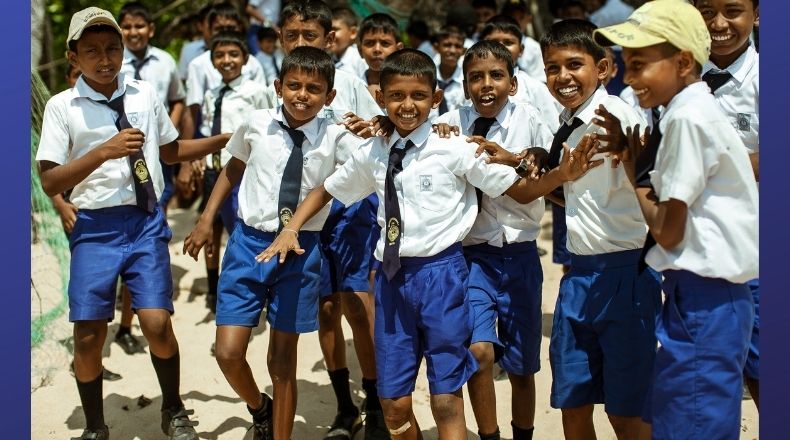
“India has been a degree-driven country. However, this conception is slowly moving towards being skilled at work”, says Mr. Chiranjiv Guha, Analyst, National Skill Development Corporation (NSDC), while talking about how NSDC is facilitating the vocationalisation of school education.
To understand the role of NSDC in facilitating vocational education in schools, creating awareness among students, preparing teachers and trainers, along with providing the opportunities of internship, apprenticeship, etc. we conversed with Mr. Chiranjiv Guha, Analyst, NSDC.
Note: These are few excerpts from the conversation. You can watch the full interview on our YouTube channel, for which the link is given below.
Q: In recent times, we, as a country have started focusing on vocational education at the school level. How is NSDC facilitating this transition through capacity building, funding, etc.?
A: NSDC provides soft loans to organizations that are willing to come on board as skill knowledge/ training providers. There are two types of NSDC partnerships – funded and non-funded.
Funded partners take soft loans from NSDC and there is a long-term engagement. Targets are offered, so that annually they meet their numbers and quality checks and balances are done. Accordingly, their partnership gets renewed.
In India, since the colonial era, there has been a gap between academicians and skilled workers. India is a degree-driven country. However, this conception is slowly moving towards the importance of developing a skilled workforce. This is because we have been struggling to bridge the gap between industry and academia. National Education Policy 2020 (NEP 2020) has further strengthened the need for skills in schools. Earlier too, the Ministry of Education introduced vocational education at the school level.
No matter in which field you are in, you will need certain skillsets. Life skills, financial literacy are skills that will never fade away. These skills are incorporated by Sector Skill Councils (SSCs) in each and every course that is offered. This will essentially help the trainees in the long term.

Few concepts have changed from the previous era to this era. To provide any skill development training in the formal education system, we were still finding out trainers or master trainers who have a Ph.D degree. Gradually, this system is getting transformed. This is strongly mentioned in NEP 2020 too!
PSSCIVE and CBSE also have a strong wing for the skill education division. A lot of content development and industry engagement happens through that. Totally 21 SSCs are involved in this program of vocationalisation of school education, offering 125 courses.
Since the 2014-15 financial year, we conducted Training of Trainers (ToT) through SSCs. So far 55,000+ trainer certifications, 38000+ assessor certifications have been already done by SSCs.
These ToTs and ToAs are now happening through online mode. This has increased accessibility for people in remote areas and also female participation.
Q: What are some of the challenges in offering NSQF compliant vocational courses at the school level? Are these courses confined to government schools? If so, why not all the schools?
A: Few job roles have been identified and few conventional skills were selected while strategizing with the Ministry of Education and working with SSCs. All the Qualification Packs (QPs) are linked to industry progression. One of the major steps taken by the Ministry of Education was to enhance the quality and quantity of these vocational courses. The ministry has also mandated that all courses will be published by NCERT. Involvement of the industry has also increased.
Once the courses are identified, the curriculum is developed and published and then the states can opt for it. Time lag in ensuring all of this could even be one and a half to two years.
Unlike short-term courses which are offered at any point of time in a year, vocational courses take a long time to implement. While we talk about vocationalisation of school education, embedding the content along with regular education, in this one of the subjects is getting replaced. This is deciding the promotion and future of the student as well.
By the time courses are offered, in certain cases, the duration could even be five years and some are of less duration. The kind of conventional courses that are offered are very beneficial.
In an unpublished study by NCERT, which was conducted in the year 2017-2018, in the state of Haryana, it was noted that the majority of the parents saw communication skills, confidence levels, personality development were enhancing among their wards who opted for these courses. 72% of alumni were found more confident, to have enhanced life skills, and communication skills.
Employers also said that students who have taken vocational courses were more open to learning, and were faster learners, had more confidence and their acceptability rate and growth rate was also high.
Coming to the question of why only government schools, it is only in terms of monetary benefits. However, a lot of private schools are also coming up with these kinds of content. It is one of the compulsory electives. These are mandatory additional subjects. NSDC is closely working with 27 educational boards on this.
Also read: 10 points to consider: Vocational education and skills in National Education Policy 2020 – Read more: https://nationalskillsnetwork.in/10-points-to-consider-vocational-education-and-skills-in-national-education-policy-2020/
Q: NEP 2020 talks about internships from class six onwards and multiple paths and credits to join mainstream education. How are these internships and various skill competitions like Junior Skills providing workplace experience to these students?
A: In any kind of vocational education, we need to provide hands-on skills through labs and shop floor to help them in understanding real-world scenarios.
Another initiative we have taken up with the support of our partners is internships. An internship gives a fair enough idea of the professional setup. Last year, during the COVID-19 pandemic, we wanted to provide this kind of exposure to students who were at home. We partnered with Internshala and provided work from home paid internships to students. However, not everyone had digital gadget accessibility.
At the same point of time, we also provided apprenticeship opportunities too. There are two types of apprenticeships – optional trades and designated trades. In apprenticeships, basic training is provided, whoever completes it can undergo the second component, i.e., the On-the-Job (OJT). This helps students in earning while learning.
FutureSkills is also an important area, which is essential for students as well as the industry. FutureSkills PRIME platform, which is a joint initiative by NASSCOM and Ministry of Electronics and IT (MeITY) has modular courses. These courses are much needed today across all the fields.
While it comes to Junior Skills and WorldSkills competitions, they help in building energy on the ground to encourage students and show the pathway to various opportunities for students. These also give international recognition to the students.














Hi my name’ is Nemmdi sanjeevaiah from Suryapet district telangana state I am a training provider in nsdc I will meet you please give us a time
i am interested to open a skill training for school student please guide me my contact number 8146705533